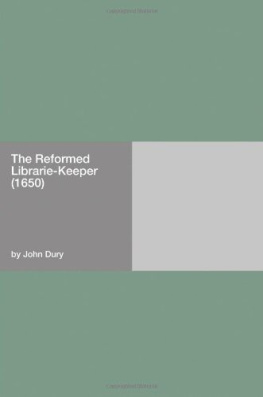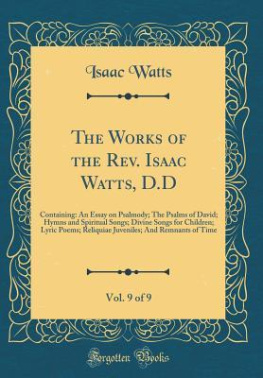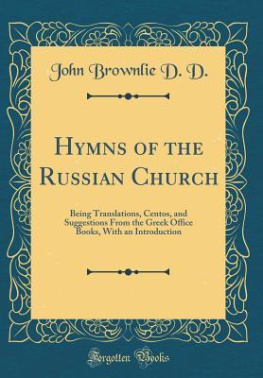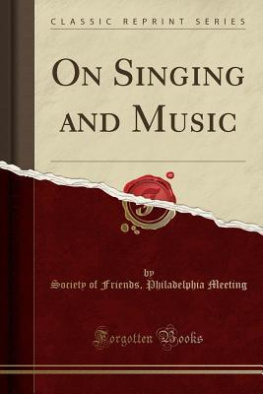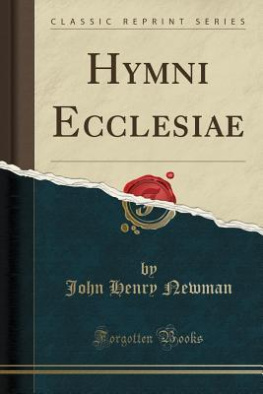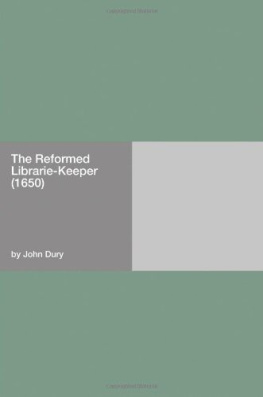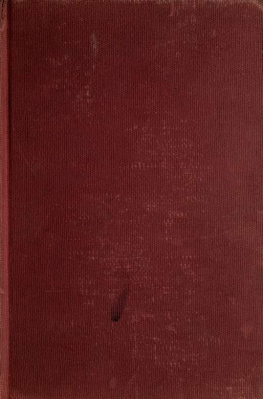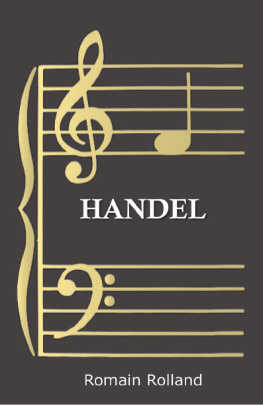Project Gutenberg's The Reformed Librarie-Keeper (1650), by John Dury
This eBook is for the use of anyone anywhere at no cost and withalmost no restrictions whatsoever. You may copy it, give it away orre-use it under the terms of the Project Gutenberg License includedwith this eBook or online at www.gutenberg.net
Title: The Reformed Librarie-Keeper (1650)
Author: John Dury
Release Date: February 28, 2005 [EBook #15199]
Language: English
*** START OF THIS PROJECT GUTENBERG EBOOK THE REFORMED LIBRARIE-KEEPER ***
Produced by David Starner, Linda Cantoni, and the PG OnlineDistributed Proofreading Team.
THE AUGUSTAN REPRINT SOCIETY
THE REFORMED LIBRARIE-KEEPER
(1650)
JOHN DURY
Introduction by
RICHARD H. POPKIN
and
THOMAS F. WRIGHT
Publication Number 220
WILLIAM ANDREWS CLARK MEMORIAL LIBRARY
University of California, Los Angeles
1983
GENERAL EDITOR
DAVID STUART RODES, University of California, Los Angeles
EDITORS
CHARLES L. BATTEN, University of California, Los Angeles
GEORGE ROBERT GUFFEY, University of California, Los Angeles
MAXIMILLIAN E. NOVAK, University of California, Los Angeles
NANCY M. SHEA, William Andrews Clark Memorial Library
THOMAS WRIGHT, William Andrews Clark Memorial Library
ADVISORY EDITORS
RALPH COHEN, University of Virginia
WILLIAM E. CONWAY, William Andrews Clark Memorial Library
VINTON A. DEARING, University of California, Los Angeles
PHILLIP HARTH, University of Wisconsin, Madison
LOUIS A. LANDA, Princeton University
EARL MINER, Princeton University
JAMES SUTHERLAND, University College, London
NORMAN J.W. THROWER, William Andrews Clark Memorial Library
ROBERT VOSPER, William Andrews Clark Memorial Library
JOHN M. WALLACE, University of Chicago
PUBLICATIONS MANAGER
NANCY M. SHEA, William Andrews Clark Memorial Library
CORRESPONDING SECRETARY
BEVERLY J. ONLEY, William Andrews Clark Memorial Library
EDITORIAL ASSISTANT
FRANCES MIRIAM REED, University of California, Los Angeles
INTRODUCTION
This work, with its quaint sentiments and its grim picture of whatlibrarians were like in the mid-seventeenth century, is more than acuriosity. John Dury was a very important figure in the PuritanRevolution, offering proposal after proposal to prepare England for itsrole in the millennium. The Reformed Librarie-Keeper is an integralpart of that preparation. To appreciate it one must look at it in termsof the plans of Dury and his associates, Samuel Hartlib and Johann AmosComenius, to reform the intellectual institutions of England so that theprophecies in the books of Daniel and Revelation could be fulfilledthere.
John Dury (1596-1680), the son of a Scottish Puritan, was raised inHolland.[1] He studied at the University of Leiden, then at the FrenchReformed seminaries at Sedan and Leiden, and later at Oxford. He wasordained a Protestant minister and served first at Cologne and then atthe English church in the West Prussian city of Elbing. There he came incontact with Samuel Hartlib (?-1662), a merchant, who was to devotehimself to many religious and scientific projects in England, and withJohann Amos Comenius (1592-1670), the leader of the Moravian Brethren,as well as with other great educational reformers of the Continent. Thethree of them shared a common visionthat the advancement of knowledge,the purification of the Christian churches, and the impending conversionof the Jews were all antecedent steps to the commencement in theforeseeable future of the millennium, the thousand-year reign of Christon earth. They saw the struggles of the Thirty Years' War and thereligious conflict in England as part of their development ofprovidential history.
In terms of their common vision, each of them strove during the decade1630-40 to help the world prepare for the great events to come. Comeniusstarted redoing the educational system through his textbooks and setforth plans for attaining universal knowledge. Hartlib moved fromGermany to England, where he became a central organizing figure in boththe nascent scientific world and the theological world. He was incontact with a wide variety of intellectuals and brought their ideastogether. (For instance, he apprised Dury of the millenarian theory ofJoseph Mede, which was to be so influential in the Puritan Revolution,and he spread Comenius's ideas in England.) Dury devoted himselfprincipally to trying to unite all of the Protestant churches in Europeand to this end began his peregrinations from Sweden and Germany toHolland, Switzerland, France, and England. These travels were tocontinue throughout the rest of his life, as he tried to negotiate anagreement on the essentials of Christianity in preparation for Jesus'return.
In 1640, as the Puritan Revolution began, Hartlib, Comenius, and Durysaw the developments in England as the opportunity to put theirscientific-religious plans into effect. They joined together in Londonin 1641 and, with strong support, offered proposals to prepare Englandfor the millennium. They proposed setting up a new university in Londonfor developing universal knowledge. In spite of the strong backing theyhad from leaders of the State and Church, Parliament was unable to fundthe project because of the turmoil of the time. Comenius left for theContinent, while Hartlib and Dury advanced other projects and involvedthemselves in the Westminster conference to reform the Church.[2]
Hugh Trevor-Roper has called Hartlib, Dury, and Comenius "the realphilosophers, the only philosophers, of the English Revolution."[3] Theycombined a long list of practical plans with an overall vision of howthese fitted into the needed antecedent events to the millennium. Theymade proposals for improving and reforming many aspects of humanactivities and human institutions. The advancement of knowledge, theimprovement of human life, and the purification of religion, whichincluded bringing the Jews and Christians together, would prepareEngland for its role when God chose to transform human history. In along series of pamphlets and tracts, Hartlib and Dury turned Comenius'stheory into practical applications to the situation then prevailing inEngland.[4]
Dury outlined this program in a sermon he gave before Parliament on 26November 1645 entitled Israels Call to March Out of Babylon untoJerusalem. He pointed out that England, the new Israel, had a specialrole in history, "for the Nations of great Britain have made a newthing in the world; a thing which hath not been done by any Nation inthe world, since the preaching of the Gospel in it, a thing which sincethe Jewish Nation, in the daies of Nehemiah, was never heard of in anyNation, that not only the Rulers, but the whole multitude of the peopleshould enter into a Covenant with their God, to walk in the waiesof his Word, to maintain the Cause of Religion, and to reform themselvesaccording to his will" (pp. 23-24).
Since England was to be God's agent in history, Dury proclaimed at theend of his sermon that "The Schooles of the Prophets, theUniversities[,] must be setled, purged and reformed with wholsomconstitutions, for the education of the sonnes of the Prophets, and thegovernment of their lives and with the soundnes and purity of spiritualllearning, that they may speak the true language of Canaan, and thatthe gibberidge of Scholastical Divinity may be banished out of theirsociety" (p. 48).
In the same year that he delivered this sermon, Dury married an aunt ofLady Catherine Ranelagh and was brought in closer contact with LadyCatherine's brother, Robert Boyle, and the young scientists of theso-called Invisible College. Dury and Hartlib pressed for reforms thatwould promote a better, more useful education from the lowest gradesupward. Convinced by the passage in Daniel 12:4 that knowledge shallincrease before the end of history, Dury and Hartlib sought variousopportunities to bring about this increase in knowledge through betterschools, better religious training, and better organization ofknowledge. Such organization would necessarily affect libraries sincethey were an all-important component of the premillennial preparation.
Next page
